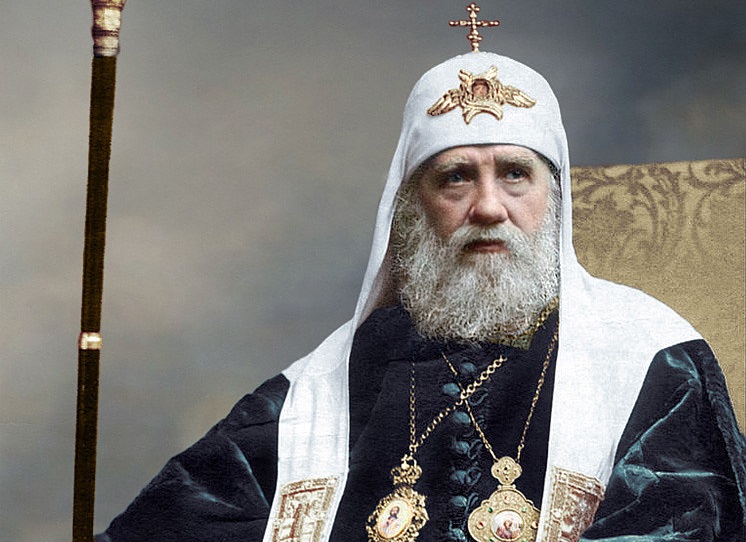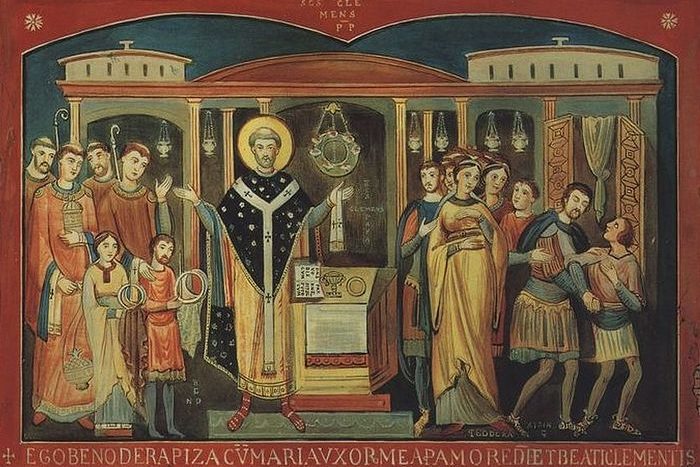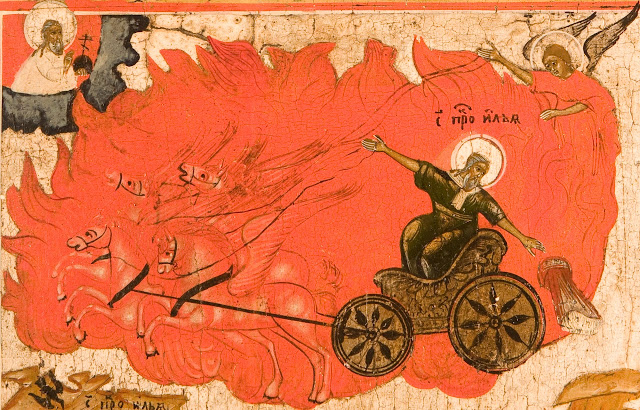
The Catalog of Good Deeds team has prepared a selection of stories that the contemporaries of Holy Patriarch Tikhon told about him:
Saint Tikhon returned from the US to Russia in 1907 and was appointed to the Diocese of Yaroslavl. One of the first decrees of the modest and simple bishop was an unwavering ban on prostrations, which had become a customary way of approaching the ruling bishop for the priests of that diocese.
(Author unknown)
The holy Patriarch was witty. His biography is teeming with arrests, prisons, and exiles. He spent almost one third of his life in jail. Nevertheless, when the bishop recalled a sad story from his life, he would always smile and did not look depressed or upset by the memories of those terrible days. Quite the opposite: his eyes were lively and his face was calm as though it wasn’t him who had suffered so much. The holy Patriarch would make the events and the people look better and nobler than they really were to prevent his audience from getting depressed.
Kuznetsov A. My Memories of Meeting Patriarch Tikhon. Manuscript. Astrakhan, 1962.
However, there was only one aspect of St. Tikhon’s life in which he had to struggle with himself to avoid crossing any lines. It was his unparalleled kindness and responsiveness of his heart. His soul emitted kindness spontaneously. His meek and clear eyes shone with it. It lit up his face and changed it from within. His kindness was manifested by his constant virtuous smile. His love was mixed with tenderness, always ready to pour out on other people. Everyone who came close to him felt its life-giving and tender touch. It allowed him never to lose spiritual balance. It was enormously hard for him to get angry or pretend that he was strict. If he hurt someone’s feelings accidentally, he was quick to make up for it. Due to the fact that true love never shows off or indulges itself in pride, it naturally fed and nurtured his humility, which made his best character traits somewhat muffled.
Met. Anastasios Gribanovsky. His Holiness Patriarch Tikhon, His Personality and Actions (Personal Memories) / / In Memory of His Holiness Patriarch Tikhon, 25th anniversary since his repose: March 25/April 7, 1925 – March 25/April 7, 1950. Jordanville: The Holy Trinity Monastery, 1950. Issue No. 4. pp. 16—39.
When the Revolution began, Patriarch Tikhon went from Moscow to Leningrad [Petrograd]. Metropolitan Benjamen [of Kazan] with clergy and the faithful met him at the Nikolayevsky Railway Station (now Oktyabrsky) and greeted him with the following words (according to a source): “We all, both the clergy and the Orthodox faithful, are ready to die for our Orthodox Church,” etc.
“It isn’t hard to die nowadays,” the Patriarch replied. “We’ve got to learn how to live properly!”
Metropolitan Benjamen (Fedchenkov). Bishop’s Diaries. Manuscript. Part III. Rostov-on-Don, 1955. [Metropolitan Benjamen (Fedchenkov). Bishop’s Diaries. Moscow. Pravilo Very, 2002. pp. 442 – 443].
Galicians who loved Russia would sometimes come to our Diocese of Chełm in spite of the border controls. There were priests among them, too. They would convert to Orthodoxy and continue to live in our diocese. Raised in the liberal Austrian Empire, they remained freedom-loving in their new homeland. One of the Galician-born priests, Archpriest Trach, recorded in a church chronicle than His Eminence Tikhon visited his parish in a certain year and immediately added to it his personal opinion, “That’s the first time I’ve ever seen a human being in a bishop.”
Metropolitan Eulogius (Georgiyevsky). The Road of My Life: Memoirs of Metropolitan Eulogius as told by him. Recorded by T. Manukhina. Paris, YMCAPress, 1947 (Impr. de Navarre). [Metropolitan Eulogius (Georgiyevsky). The Road of My Life: Memoirs. Moscow. Moskovsky Rabochi. VPMD, 1994. pp. 88, 89, 93, 99-103, 110, 132, 281-282.
“All of a sudden, a big gray cat marched out of the bishop’s cell. It lay on the floor and started purring and playing around. We were relieved because we couldn’t help thinking that if pets felt safe in the bishop’s house, it was safe for the bishop’s visitors to be around him, too. It meant that the bishop was gentle with everyone and we didn’t need to be scared of him. Indeed, the bishop who entered the room was dealing with us meekly, affectionately, simply, and benevolently. He listened to our requests with attention and willingness to help,” – that was what Archpriest Nicholas Kniazev recalled about Holy Patriarch Tikhon.



